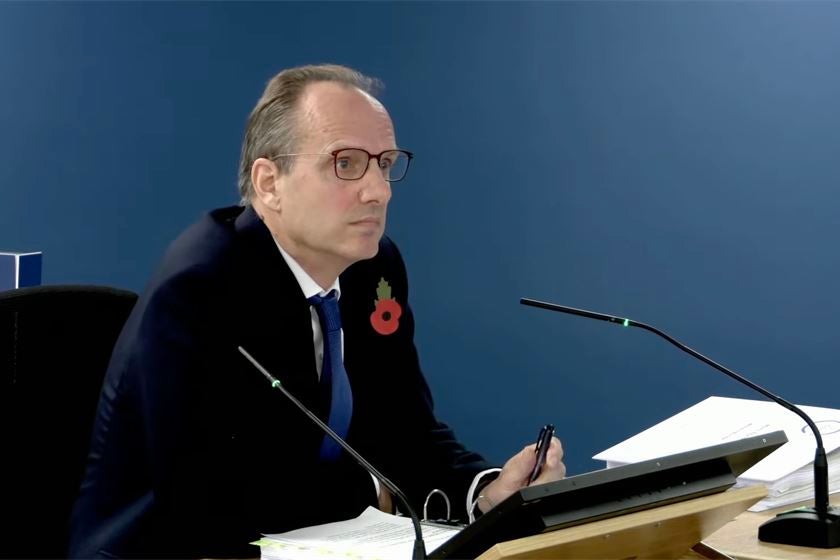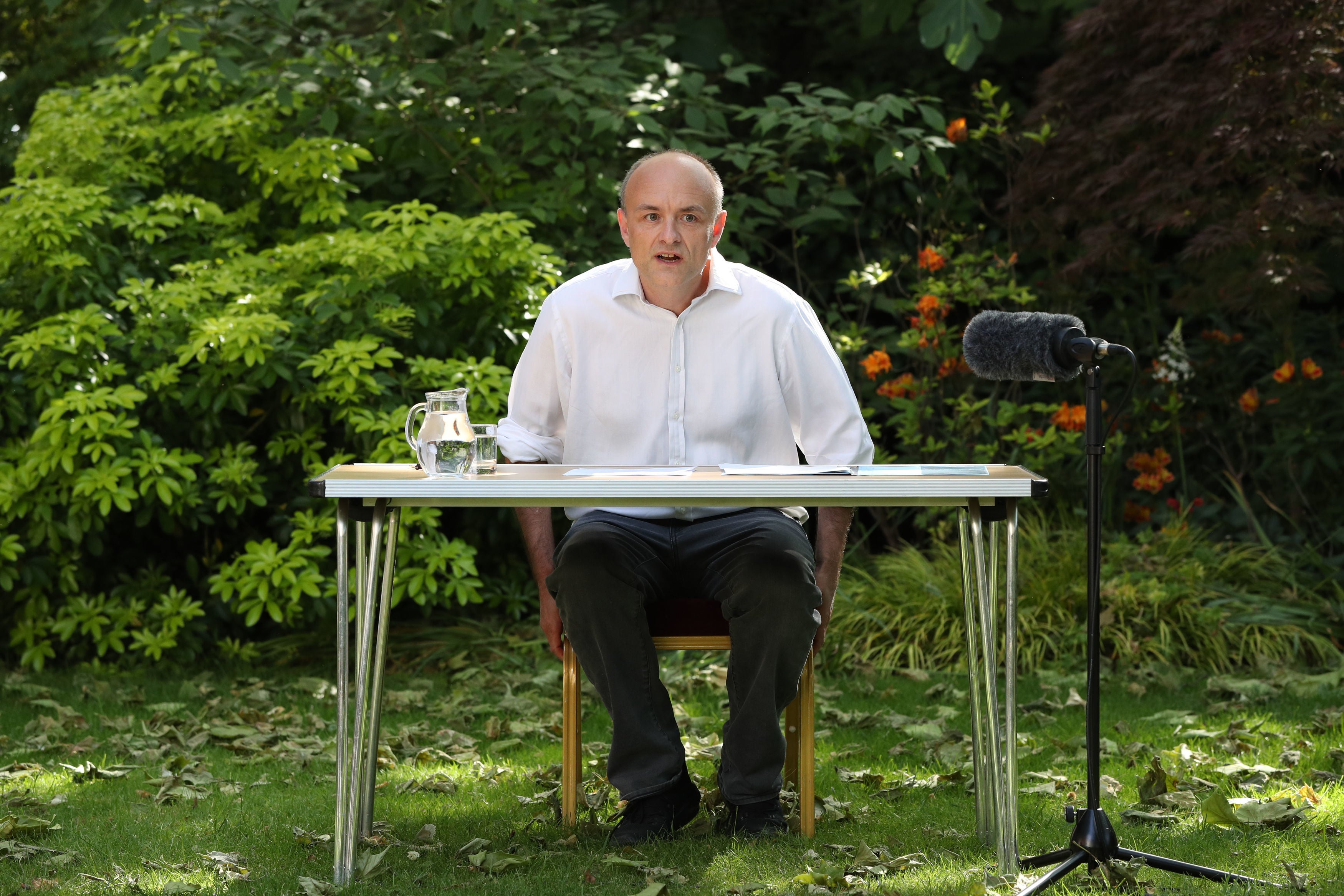So, ‘Party Marty’, why were No 10’s WhatsApp messages set to disappear?
Former Boris Johnson aide Martin Reynolds struggled to answer questions at the Covid inquiry today. But with Dominic Cummings about to give evidence, it could be Johnson and Rishi Sunak who will soon be doing the squirming, writes Sean O’Grady


In the latest evidence sessions at the inquiry into the official response to the Covid pandemic, the “star” turn was given by Martin Reynolds, who was principal private secretary to Boris Johnson during the pandemic. Reynolds is perhaps best known for his role in Partygate. He was the chap who sent the now notorious “Bring Your Own Booze” email to Downing Street staff during lockdown. In his testimony to the inquiry, Reynolds, who earned the name “Party Marty”, was unable to fully explain why WhatsApp messages involving the prime minister and others were set to “disappear” after seven days. This was done by him in April 2021 as calls for a public inquiry into Covid responses intensified. The political problem for Rishi Sunak and his party is that these inquiry proceedings are a constant reminder of the mistakes and misbehaviour that occurred during the emergency. Reynolds’s explanation about the disappearing digital conversations was that: “It could, for example, have been because I was worried of someone screenshotting or using some of the exchanges and leaking them.” It hardly inspires confidence in the way contemporary government operates.
What else did we learn?
Nothing that was all that shocking, given what we’ve already learned from the media reports, police fines, Sue Gray investigation, the Commons privileges committee report, and various interviews and leaks by the various personalities involved. Johnson apparently “blew hot and cold” on key decisions; Dominic Cummings, was the “most empowered chief of staff ever seen” (true, even though he didn’t technically hold that job title); his staff thought Johnson was “mad” for thinking his WhatsApp messages would not be made public (as transpired); and that the cabinet secretary, Simon Case, was “at the end of my tether” at Johnson “changing strategic direction” while Cummings agreed saying he was getting “despairing” messages from people in meetings with him.
Anything else?
Sadly, there was. Female officials were “talked over”, with “significant misogyny” on display. Again maybe not a shocker, but not impressive either.
But Boris Johnson is history now, isn’t he?
Sort of. Despite hopeful noises from some in the “Bring Back Boris” movement, it feels increasingly that his time has passed. However, he was prime minister for three years not so long ago, and he hasn’t been forgotten. The seemingly endless flow of revelations about his chaotic time in office continues to cast a nasty shadow over his successor. The Covid inquiry is a permanent reminder of Partygate, which has been one of the factors that destroyed the Conservatives’ popularity. The problematic Brexit deal has also left an unfortunate legacy, and Johnson’s many boosterish claims about “levelling up” now sound empty.
In the Tory party, they call it “Long Boris” – a debilitating condition that will afflict its sufferers for an indefinite time.
What’s next?
Lee Cain, former comms chief, and Cummings, former special adviser. The pair worked very much as a team, and we may expect them to be singing from the same “hymn sheet”, albeit not as profane as the various messages that passed between them during those heady days. Judging by his past performances in the Downing Street rose garden, at Commons select committees and an interview with Laura Kuenssberg, Cummings’s encounter with Hugo Keith KC should be pure theatre.

Is it likely to be damaging?
Very, though much is already known, and the Tories are so unpopular that you wonder if we’re entering into diminishing-returns territory. It would certainly set back Johnson’s already slender chances of a comeback, and give disillusioned Tories another reason to stay home or switch their vote. Unlike Donald Trump, Johnson and the Tories don’t seem to be enjoying any bounce from the constant revelations of wrongdoings.
George Osborne, no pal of Johnson, commented recently that: “From what I understand, there are some pretty staggering things that have been said on those WhatsApp messages … not just by Boris Johnson but key advisers like Dominic Cummings. Really pretty disgusting language and misogynistic language.”
When will Johnson have his say?
Probably in December; a nice Christmas present for Sunak. On past performances, he may not do himself any favours.
Does Johnson have anything else to fear?
Yes. Being slagged off (again) by Cummings is one thing; but what if the saintly Professor Chris Whitty, chief medical officer, and Patrick Vallance, ex-chief scientist, echo the criticisms of Johnson? If such respected figures were to suggest his behaviour cost lives or that he refused to listen to the science, then Johnson’s reputation will sink lower than a rattlesnake’s belly.






Join our commenting forum
Join thought-provoking conversations, follow other Independent readers and see their replies
Comments